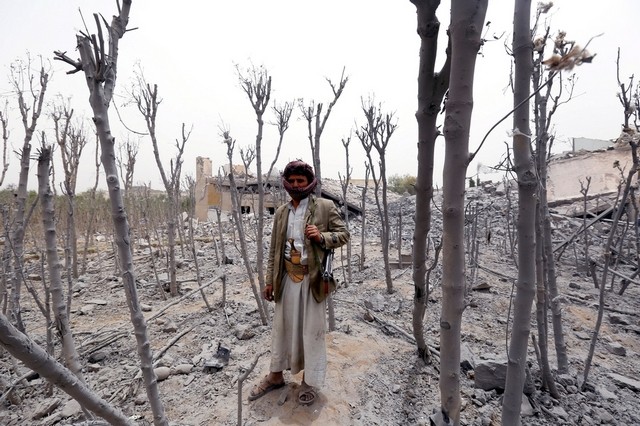
The National: Dengue Fever, Malaria Bring New Woes to Yemen
Local Editor
According to The National website recently on Tuesday, it said that, "Thousands of Yemenis have been struck down by dengue fever and malaria due to a chronic shortage of fuel and prolonged electricity outages".
In an article published on The National website on Tuesday, it wrote that, "Doctors in Hodeidah province say the number of cases in recent weeks from the mosquito-borne diseases are double that of previous years".
"Hodeidah... as one of Yemen’s poorest regions,... has suffered greatly from the power outages affecting the nation", the article added.
It also wrote that, "With less than two hours of electricity available each day, and a shortage of fuel to run generators, the lack of air conditioning and fans has left the population more exposed to mosquitos than in previous years, according to health officials".
Moreover, head of Hodeidah’s health authority, Dr Abdulrahman Jarallah, said that, "The diseases usually spread in the hot weather during summer. However, the electricity outages this year had led to twice as many cases than usual".
According to the article, Dr. Jarallah said that, "During the last three months, they had dealt with 19,406 cases of dengue fever and 19,666 people with malaria. Five of the dengue victims had died while three of the malaria cases had been fatal. Hodeidah, which sits on the Red Sea coast and is home to Yemen’s second largest port, usually has the highest cases of dengue and malaria in the country".
Meanwhile, the article wrote that, "A lack of clean water means people often store their water in containers and without proper covers which provides a perfect breeding ground for the mosquitos".
In addition, Dr. Jarallah added that, "Most of the victims they have seen in recent months have come from the province’s poor rural areas where the quality of housing is also very low".
"The poverty leaves people more vulnerable to the mosquito that carries the diseases," he said.
Another doctor, Dr. Adnan Al Maqtari, who works at a large state hospital in Hodeidah city, was referred to in the article as saying that, "With temperatures now reaching 40°C combined with the electricity and fuel shortage, the diseases would continue to spread".
He further said that those "already suffering from illness and those over 40 years old are more likely to be infected".
Furthermore, The National article also mentioned that due to the tough summer environment, it "has led to some of those who have contracted dengue to travel from the relative peace of Hodeidah to the capital Sanaa, which has many of the targets of an Arab bombing campaign".
A Hodeidah resident in his 60s, Abdellatif Al Nijashi, arrived in Sanaa on May 27 "after he could no longer find fuel for his generator and the summer heat became unbearable", the article wrote.
"The weather in Hodeidah helps the diseases to kill you gradually", Nijashi said.
Even more, the article said that, "While there is no direct treatment for dengue fever, Mr Al Nijashi said he had spent more than 200,000 Yemeni Rials [Dh3,400] on medicine but he had still not recovered. He was being cared for at the Al Thawra state hospital in Sanaa, and hoped the milder weather in the capital would help him to get better".
"For some, just the fear of contracting the diseases led them to leave Hodeidah", it said.
It referred to Ala’a Riyadh, 42, who closed his shop in Hodeidah in late May and travelled with his whole family to Taez so that his children would be safe.
"I fled Hodeidah to save my children from the diseases that started to spread, and also to escape from the hot weather. We could not sleep, and we could not work - life in Hodeidah became very hard.
The executive manager of the National Center for Freedoms and Development, Salah Al Homaidi, described the situation in Hodeidah as a humanitarian catastrophe.
"Most of the people in Hodeidah are poor and they could not buy the fuel from the black market to operate their generators, I call for the humanitarian relief organisations to rescue them," he said.
He said that, "The worst suffering was in the rural areas like Tehama where people could not get to hospitals for treatment".
"The first solution to the suffering of Hodeidah is to provide it with electricity, if the government or the humanitarian organisations could provide the governorate with electricity, the other problems will be solved," Al Homaidi added.
